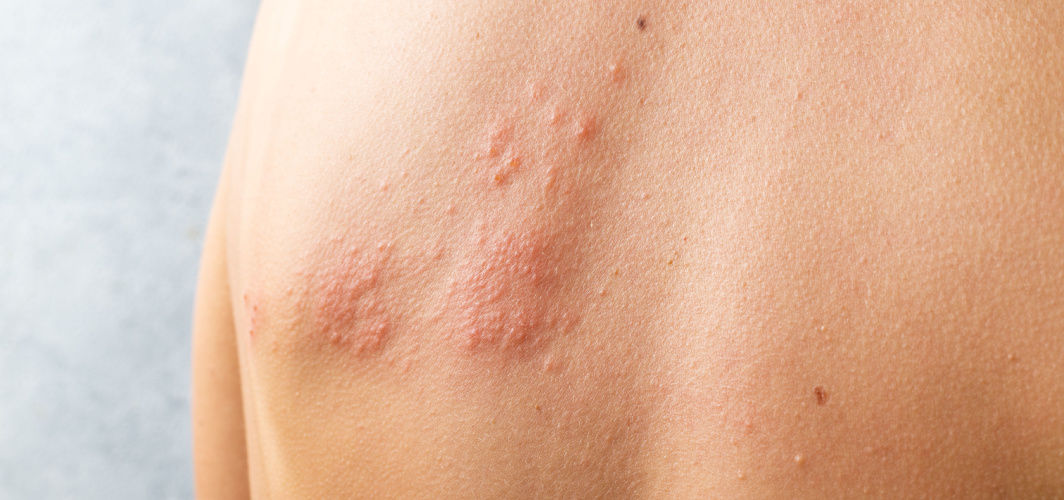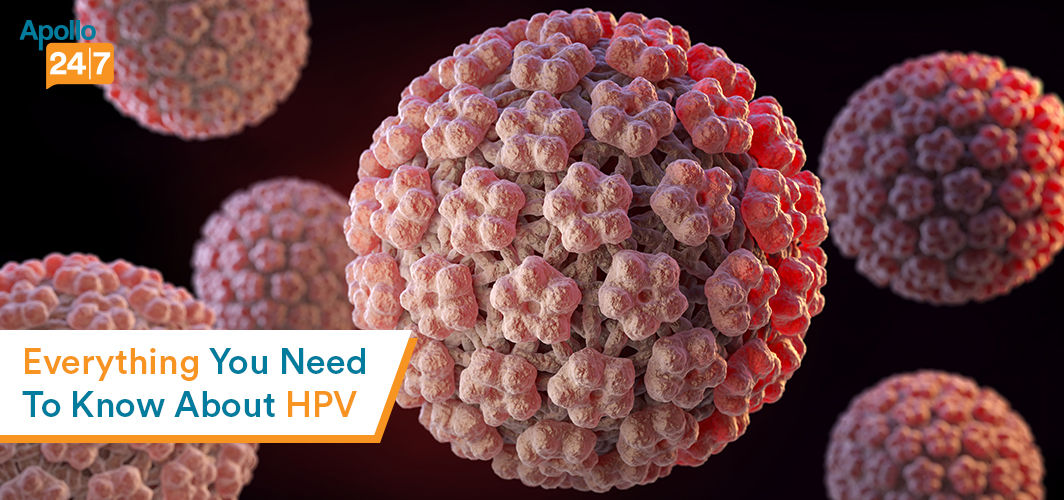General Health
Everything You Need To Know About Shingles
7 min read
By Apollo Pharmacy, Published on - 29 September 2023
Share this article
0
0 like

Shingles is a viral infection caused by the varicella-zoster virus, the same virus that causes chickenpox. After recovering from chickenpox, the virus can remain dormant in your nervous system and reactivate years later, causing shingles. Knowing about shingles can help you understand its symptoms, seek timely medical attention, and help prevent its transmission to others, especially individuals who have never had chickenpox or received the varicella vaccine. Let's learn more about shingles in this blog.
What Causes Shingles?
During a chickenpox infection, the Varicella Zoster virus (VZV) enters your body through the respiratory system and then spreads to the skin, causing the characteristic itchy rash. Once you recover from chickenpox, the virus sleeps into nerve cells near your spinal cord and brain. After chickenpox, VZV enters a dormant phase where it remains inactive in your nerve cells for many years.
However, exposure to factors like ageing, stress, a weakened immune system, or certain medications can trigger the reactivation of VZV. The virus travels along nerve fibres to the skin, resulting in a painful rash known as shingles.
Risk Factors For Developing Shingles
Here are some of the risk factors associated with shingles:
1. Age as a Risk Factor
- Shingles primarily affects older adults, with the risk increasing significantly after the age of 50.
- As we age, our immune system weakens, making it more difficult to fight off infections like shingles.
2. Weakened Immune System and Its Impact on Shingles
- Certain medical conditions such as HIV/AIDS, cancer, or organ transplantation weaken the immune system, making individuals more susceptible to shingles.
- Medications like corticosteroids that suppress the immune system can increase the risk as well.
- Stress, lack of sleep, and poor nutrition can also weaken the immune system and contribute to the development of shingles.
3. Other Factors
- If you have had chickenpox in the past, the varicella-zoster virus can reactivate later in life and cause shingles.
- Individuals who have received the chickenpox vaccine are less likely to develop shingles compared to those who have had the actual infection.
- Women are more likely to develop shingles than men, especially during pregnancy.
Signs and Symptoms of shingles
Signs and symptoms of shingles can vary from person to person, but there are some common characteristics to look out for.
1. Rash
One of the most distinctive features of shingles is the rash. It usually appears as a band or strip of blisters on one side of the body, typically on the torso or face. The rash is often red and itchy, and the blisters may break open and crust over.
2. Sensations and pain
Individuals with shingles may experience various sensations and pain. It is common to have a burning or tingling sensation before the rash appears. The affected area may also be sensitive to touch and feel painful. This pain can range from mild to severe and can persist even after the rash has healed.
3. Other possible symptoms
Other possible symptoms of shingles include fever, headache, fatigue, and body aches. Some individuals may also have swollen lymph nodes near the rash. It is important to note that not everyone experiences all of these symptoms, and some individuals may have a milder case of shingles with fewer symptoms.
Complications of Shingles
While most people recover from shingles without any complications, some individuals may experience long-term effects. Here are two common complications associated with shingles:
1. Postherpetic neuralgia (PHN) and its long-term effects
PHN is the most common complication of shingles. It occurs when the pain continues even after the rash has healed. This condition can last for months or even years and may interfere with daily activities and quality of life.
2. Other potential complications
- Vision problems: If shingles affect the eye, it can cause eye infections or even lead to vision loss.
- Neurological problems: Shingles can result in inflammation of the brain (encephalitis), facial paralysis (Ramsay Hunt syndrome), or other neurological issues.
- Skin infections: Bacterial infections can occur if the shingles rash becomes infected.
Diagnosis of Shingles
Diagnosing Shingles is crucial for timely treatment and preventing complications. There are two methods available to diagnose this disease accurately:
1. Physical examination
Diagnosing shingles involves a thorough physical examination by a healthcare professional who will analyse the symptoms and appearance of the rash. The telltale signs of shingles are a painful, blistering rash that typically appears on one side of the body or face.
2. Lab tests
Lab tests may be conducted to confirm the presence of the varicella-zoster virus, which causes shingles. These tests can include:
- Viral culture: A sample of fluid from the blisters is collected and sent to a laboratory to check for the presence of the varicella-zoster virus.
- Polymerase chain reaction (PCR) test: This test detects the genetic material of the virus in samples taken from the affected area.
Treatment Options for Shingles
Seeking medical treatment promptly can help reduce the risk of complications and improve overall outcomes. If you experience symptoms such as a painful rash or blisters, consult a healthcare professional immediately. The treatment of shingles includes:
1. Antiviral medications
Antiviral drugs for shingles are prescribed to reduce the severity and duration of shingles symptoms. They stop the multiplication of the virus, however, it should be started ideally within 72 hours of the rash appearing.
2. Pain management strategies
Shingles can cause severe pain, even after the rash has cleared. Over-the-counter pain relievers such as acetaminophen or ibuprofen can help alleviate mild to moderate pain. However, for more severe pain, prescription medications may be necessary.
Home Remedies for Shingles
In this section, we will delve into some self-care tips for managing shingles at home.
- Apply a cool, damp cloth or take cool baths to soothe the affected area. Ensure the affected area is clean and dry.
- Use over-the-counter pain relievers like acetaminophen or ibuprofen to alleviate pain.
- Avoid tight or irritating clothing that may aggravate the rash.
- Avoid touching or scratching the rash to prevent spreading the virus to other parts of your body or others. Wash your hands with soap and water after touching the rash.
- Include foods high in vitamin C, such as oranges, kiwis, and bell peppers, as they promote wound healing and boost immune function.
- Incorporate foods rich in vitamin E, like almonds, spinach, and sunflower seeds, which have antioxidant properties that aid in tissue repair.
- Consider consuming traditional Indian spices like turmeric, ginger, and garlic, known for their anti-inflammatory and immune-boosting properties.
Prevention Strategies for Shingles
There are several prevention strategies for shingles, some of these include:
1. Vaccination
The most effective way of preventing shingles is by getting vaccinated against the herpes zoster virus. The shingles vaccine helps boost your immune system's ability to fight off the virus that causes shingles. Make sure to consult with your doctor for more information about the vaccine.
2. Healthy habits
Maintaining a healthy lifestyle can have a significant impact on your immune system's function and overall well-being. Here are some habits that can support your immune system:
- Eating a balanced diet: Include plenty of fruits, vegetables, whole grains, lean proteins, and healthy fats in your daily meals.
- Regular exercise: Engaging in physical activity boosts your immune system and reduces stress levels.
- Getting enough sleep: Aim for 7-8 hours of quality sleep each night to give your body time to repair and rejuvenate.
- Stress management: Practice stress-reducing techniques like meditation, deep breathing exercises, or engaging in hobbies you enjoy.
Takeaway
Shingles is a viral infection that causes a painful rash. If you suspect you have shingles or have been exposed to someone with shingles, it is important to seek medical advice for proper diagnosis and treatment. Your doctor can guide the most appropriate shingles treatment options for your specific situation. Remember, prevention is always better than cure, get yourself vaccinated today.
Protect yourself from shingles with vaccination.
FAQs
Q. Is shingles contagious?
Yes, shingles can be contagious to individuals who have never had chickenpox or have not been vaccinated against it. Direct contact with the rash or fluid from the blisters can transmit the varicella-zoster virus.
Q. Can shingles be prevented?
The best way to prevent shingles is by getting vaccinated with the shingles vaccine. The vaccine reduces the risk of developing shingles and also help lower the chances of experiencing severe complications.
Q. Who is at risk for shingles?
Anyone who has had chickenpox is at risk of developing shingles later in life. However, older adults and individuals with weakened immune systems are more susceptible to the reactivation of the virus.
Q. How long do shingles last?
The rash usually develops into blisters and crusts within 7-10 days. Most people recover from shingles within 2-4 weeks.
Q. Can shingles cause complications?
Yes, shingles can lead to complications such as postherpetic neuralgia (persistent pain after the rash has healed), vision loss if it affects the eye area, and bacterial skin infections.
General Health
Consult Top Infectious Disease Physicians
View AllLeave Comment
Recommended for you

General Health
Why Are Carbonated Beverages The Ultimate Health Villain? 5 Reasons Decoded
Excessive cola or soda consumption has been linked to diabetes, heart diseases, and weight gain. This article explains why drinking soda can be dangerous for you.

General Health
Everything You Need To Know About HPV
Human papillomavirus, also known as HPV, is an infection seen in sexually active men and women and can present various clinical manifestations from warts (finger-like projections) to cancers.

General Health
Can Smoking & Drinking Cause Cataract? Here’s Everything That You Must Know
If you're over 60 and have blurry eyesight, you may have cataract. In the majority of cases, it worsens over time, resulting in hazy vision. Cataracts can be surgically removed to restore clear vision.
Subscribe
Sign up for our free Health Library Daily Newsletter
Get doctor-approved health tips, news, and more.
Visual Stories

Plant-based Foods That Are a Great Source of Iron
Tap to continue exploring
Recommended for you

General Health
Why Are Carbonated Beverages The Ultimate Health Villain? 5 Reasons Decoded
Excessive cola or soda consumption has been linked to diabetes, heart diseases, and weight gain. This article explains why drinking soda can be dangerous for you.

General Health
Everything You Need To Know About HPV
Human papillomavirus, also known as HPV, is an infection seen in sexually active men and women and can present various clinical manifestations from warts (finger-like projections) to cancers.

General Health
Can Smoking & Drinking Cause Cataract? Here’s Everything That You Must Know
If you're over 60 and have blurry eyesight, you may have cataract. In the majority of cases, it worsens over time, resulting in hazy vision. Cataracts can be surgically removed to restore clear vision.